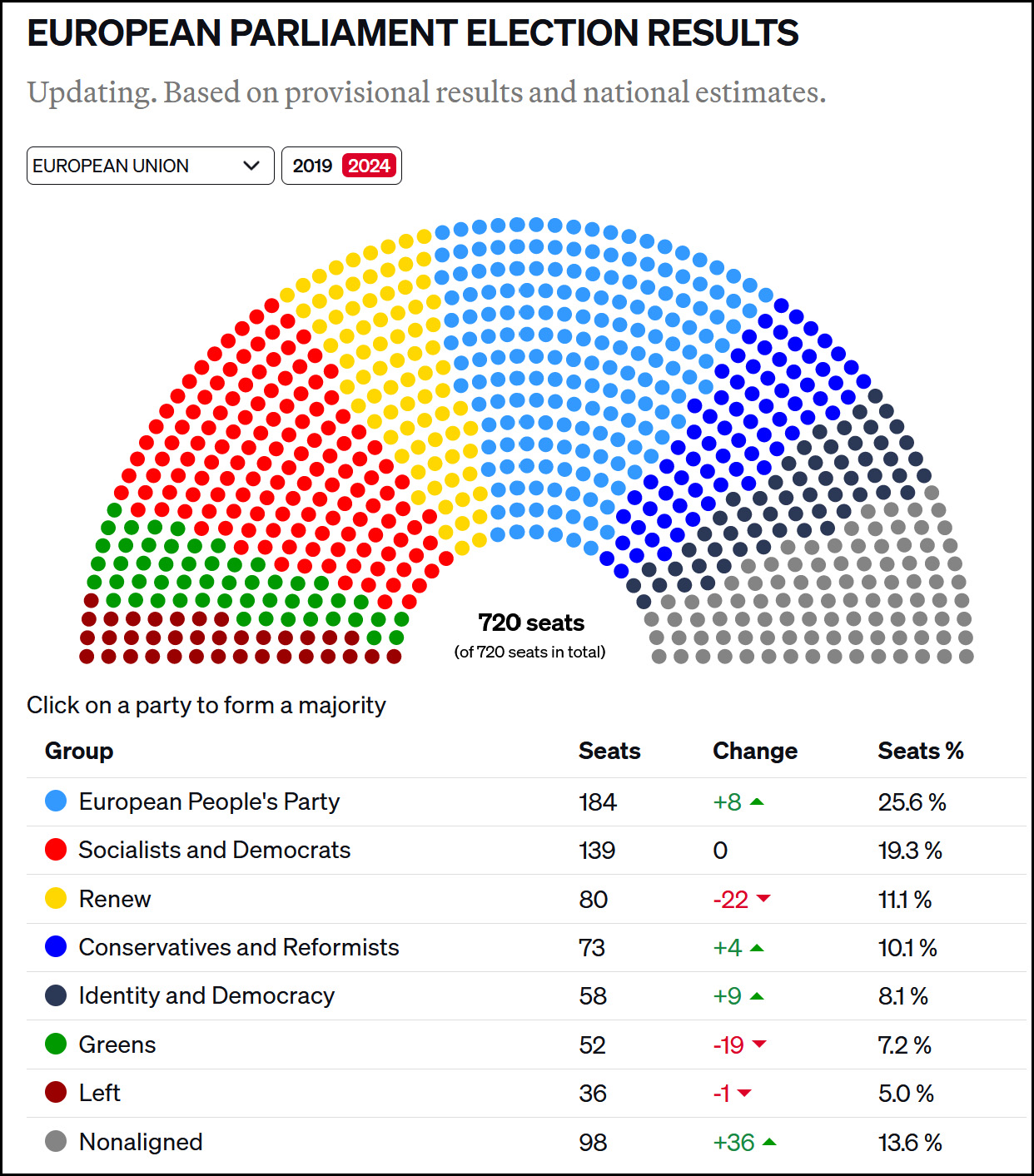The venerable New York Times reports, “Voters in the European Union delivered strong gains to anti-immigrant, nationalist parties, challenging leaders in Germany and France, and unsettling the political establishment.” They do not report the gain in seats by nationalist parties, but apparently it amounts to 19 seats out of 720, or 2.6 percent.

15 members of the nonaligned group are far-right German AfD members. Identity and Democracy and Conservatives and Reformists are apparently populist, though presumably there are distinctions between the two. I read the Economist magazine, but I couldn’t tell you anything about the plurality European People’s Party and can only guess at Renew’s platform.
Happily, some of this can probably be sussed with Wikipedia, but I figured some here share my ignorance, others can rectify it, and together we can sketch a view from 100,000 kilometers up. American political junkies like myself can fantasize about what it’s like to vote in an election that they know very little about. Currently I’m undecided.
On the war in Ukraine, the most hawkish on Russia are the EPP; number 2 are the ECR (center-right European Conservatives and Reformists). Nationalists and far-left are least assertive. Socialists, Greens, and Renew are far closer to EPP than far left/right wing nationalists.
On nuclear power Greens and the left are least supportive: I’m a climate hawk so I can rule them out. ECR are most supportive. Socialists are squishy on nuclear power. Renew are somewhat more supportive than socialists. ECR are most pro-nuke.
What about climate risk in general?
Greens and the Left get the highest scores, but I’m highly dubious about that given their nuclear stance. Socialist and Dems follow, then Renew Europe. ECR get a 10 out of 100 point score. Ouch: they had a shot at my meaningless support. EPP has a score of 25. So I guess I’d take a closer look at the Socialists and Renew.
Another description of groupings in the European Parliament (bear in mind that the European Parliament is but one component of the -deliberately- diffuse policymaking process in the EU, not a sovereign authority over the member states):
Some more analysis and discussion of what happens next:
